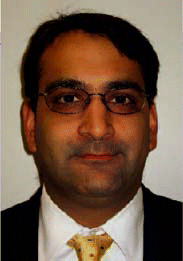When the team of otolaryngologists from Children’s Hospital in Boston, including Drs. David Roberson and Rahul Shah, among others, investigated the classification of errors and physician responses to errors as it is germane to otolaryngology, they provided a great service to their fellow specialists. As the team emphasized, and was mentioned in Part 1 of this two-part series (see ENToday, November 2006), when it comes to provider-related errors, otolaryngology is different from other specialties only in some ways.1-6 That’s why patient safety programs need to be driven by practitioners at the sharp end of the system, at the point of care, not by a [general] patient safety committee, said David Eibling, MD, a physician in the Veterans Affairs (VA) system and a professor of otolaryngology-head and neck surgery at the University of Pittsburgh, because they are not able to see the unique problems of each individual specialty, and moreover, you don’t know where your own problems are unless you count them.
Explore This Issue
December 2006Before the publication of To Err is Human,7 the now famous report of the Institute of Medicine that started the patient safety ball rolling at turbo speed, the most frequent subject of patient safety publications was medical malpractice. Since its release in 2000, the most frequently addressed topic has been organizational culture, and growing data substantiate that the way in which communication is handled within that culture is a vital factor in litigation and patient satisfaction.5

Pitfalls and Land Mines
Are there any particular areas where otolaryngologists are more at risk for errors than other physicians? For any physician, medical knowledge and technical skill, or even patient-doctor relationship skills, are not the biggest areas for risk, said Nancy Elder, MD, Associate Professor of Family Medicine at the University of Cincinnati, who has studied extensively the topic of errors in medicine. Sometimes the risks lie not so much with the physician himself or herself; it’s the communication before and after the exam or operation, or the providers’ office processes and systems. The patient doesn’t have to just communicate with the physician, Dr. Elder said. The patient also has to communicate with whoever answers the telephone, the front desk, the nurse-and a lot of errors are happening in these areas that physicians are not even aware of.
For instance, she said, patients may not be getting prescription refills because there is laxity and inattention to returning the patients’ phone calls. Or patients are often told, If you don’t hear from me about your lab test, it means everything is all right. Nobody should suggest that that is okay, said Dr. Elder, who tells patients never to allow anyone to tell you that.8, 9 Aside from the interactions in examination rooms and the operating theater, she said, all the people that work around [doctors] need to be functional, and physicians need to take an active role in that.
The Emotional Realm
In a retrospective anonymous survey sent to 2,500 otolaryngologists, all members of the American Academy of Otolaryngology-Head and Neck Surgery (AAO-HNS), Rahul Shah, MD, and his colleagues at Children’s Hospital, Boston, inquired about errors that had been made in the previous six months.3, 4 Two particular aspects of the data distinguished themselves beyond the scope of the original study: respondents’ emotional responses and their corrective actions.1 Although unasked, 22 (10%) of respondents reported having experienced emotions including regret, embarrassment, guilt, anxiety, loss of temper, and irritation. The authors remarked that although surgeons are well trained in how to handle errors and adverse events in terms of their complications, they are not as used to dealing with their own emotions and those of their patients.

Leave a Reply